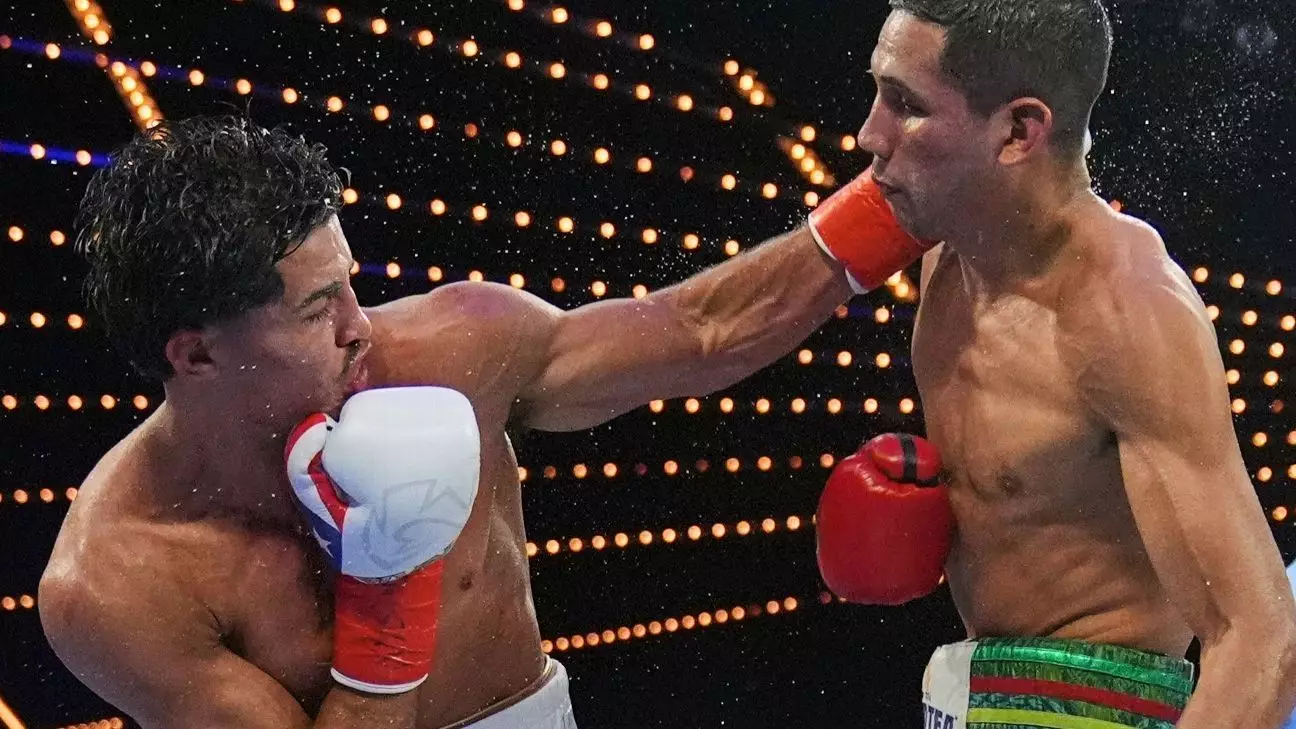Xander Zayas’s recent victory at Madison Square Garden not only elevates his personal career but also exposes a troubling tendency within the boxing world: the relentless celebration of youthful promise over seasoned wisdom. At just 22 years old, Zayas’s dominance and technical prowess demand admiration; however, beneath this achievement lies a problematic narrative that equates youthful vigor with inherent superiority. This obsession fuels a culture where experience, strategic patience, and mental resilience are undervalued in favor of raw power and early success. Society often overlooks the importance of maturity and the nuanced growth that comes with age, viewing boxing’s youngest champions as symbols of progress instead of prototypes of a deeper, more complex development process.
This narrative risks perpetuating a cycle where fighters are prematurely praised for their talents at a young age, pressuring them into a false sense of invincibility. Zayas’s victory might seem like a remarkable milestone, but it also raises questions about how the sport rewards raw talent over grit and tactical evolution. The glorification of youth creates an environment in which upcoming fighters feel immense pressure to climb the ranks quickly, often to their own detriment, overlooking the importance of gaining experience and emotional maturity crucial for longevity in the ring. It’s as if age is seen as a barrier to greatness—an outdated view that ignores the profound value of seasoned discipline and strategic adaptation.
A Flawed Celebration of Power and Precision
The event’s headline, a young champion showcasing precision and skill, appears resplendent but ultimately obscures the disparities in boxing culture: the relentless pursuit of knockouts and spectacle at the expense of genuine craftsmanship. Zayas’s technical execution—elusive footwork, adept counterpunching—may impress, yet it also raises concerns about how victory is now often measured solely through aggressive stats and highlight-reel moments. The fight’s judges awarded Zayas decisively, but the broader question remains: does the sport prioritize tactical intelligence or merely the ability to land the most eye-catching punches?
This focus on power and quick results fosters an environment where fighters, trainers, and promoters are incentivized to produce quick, decisive moments rather than valuing resilience, adaptability, or tactical depth that develops over years. The sport commodifies spectacle; skills are often judged by their visual impact rather than their strategic sophistication. Zayas’s success might serve as an inspiration, but it should also be a wake-up call—particularly in a culture obsessed with immediate gratification, risking a future where boxing becomes less about true artistry and more about fleeting moments of brilliance that support commercial interests.
The Cost of a Superficial Success Narrative
Celebrating Zayas as the youngest current world champion may fill headlines, but it also glosses over the grind, setbacks, and maturation that define boxing’s deeper narrative. The veneer of victory hides the reality that true greatness in boxing usually takes time to forge—built on humility, loss, and the relentless pursuit of self-improvement. The sport’s ecosystem has become enamored with showcasing youthful prodigies, often at the expense of fostering fighters who possess the patience and mental toughness necessary to face the most formidable opponents consistently.
This obsession has broader social implications. It mirrors a societal tendency to idolize instant success stories—whether in sports, technology, or entertainment—while undervaluing the perseverance required to sustain achievement. Boxing’s culture of celebrating young, flashy champions risks encouraging a fleeting form of heroism, where temporary dominance overshadows the long-term discipline that creates true legends. It’s a dangerous paradigm that equates winning with becoming a champion rather than with the process of becoming a complete fighter.
Challenging the Narrative: A Call for Depth and Maturity
If boxing aspires to elevate itself beyond superficial spectacle, it must confront its celebration of youth and power with a more nuanced appreciation for experiential wisdom and mental resilience. Young champions like Zayas should be admired for their talent, but not idolized as the ultimate benchmarks of success. The sport must recognize that real greatness isn’t measured solely by wins or knockout ratios but by a fighter’s capacity for growth, adaptation, and sustained excellence over time.
This perspective aligns with a more balanced, center-wing liberal view—a recognition that true progress, whether in sport or society, depends on patience, learning from setbacks, and cultivating resilience. Boxing’s future should focus on nurturing fighters who embody these qualities, rather than merely those who can deliver impressive highlights in the short term. If the sport continues glorifying fleeting accomplishments, it risks losing sight of what it truly means to be a champion: someone who evolves into a master of their craft through perseverance, discipline, and humility.


Leave a Reply